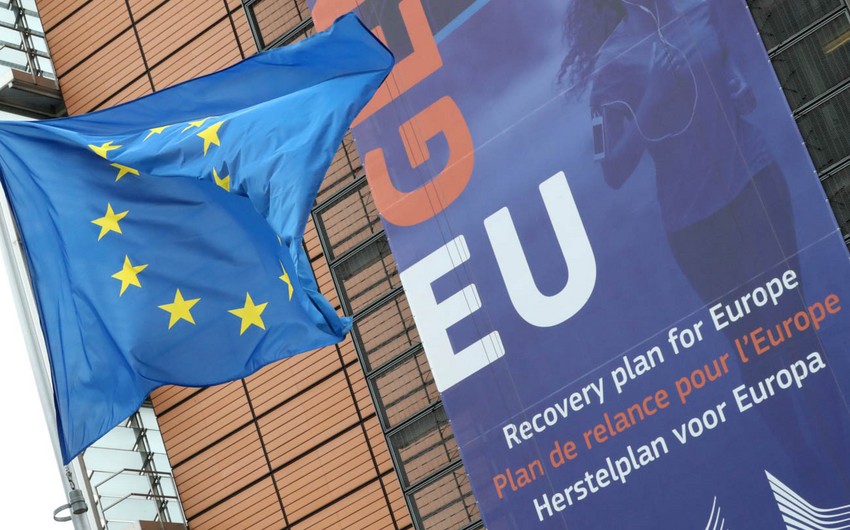leaders meeting in Brussels for a second day were fighting to close a deal for a 750 billion-euro ($860 billion) stimulus package as fiscally hawkish countries from the North tried to strip the plan of much of its firepower.
While the Dutch government welcomed a new proposal unveiled on Saturday morning that cut the amount of grants in the program to 450 billion euros from 500 billion euros, Austria, Finland and others want to push the figure significantly below 400 billion euros, according to diplomats familiar with the talks.
Swedish Prime Minister Stefan Lofven is calling for a maximum of 150 billion euros, Ansa newswire reported.
Sitting together in the Belgian capital for the first time in five months, most leaders are seeking a decisive response from the bloc with more than 100,000 Europeans dead from Covid-19 and their economies battered by the lockdown. Yet the attack on the grant component from a small group of nations led by Mark Rutte of the Netherlands threatens to undermine a plan first sketched out by Germany and France in May.
“We are in a phase of deadlock,” Italian Prime Minister Giuseppe Conte said in a statement on Facebook. “We are having a hard confrontation with the Netherlands and also with so-called frugal countries.”
Chancellor Angela Merkel and French President Emmanuel Macron have argued for making most aid available as grants to shield the public finances of southern nations, and Italy in particular, from the fallout from the pandemic and they have won the backing of most countries involved in the talks.
The first day of the summit ended in acrimony, leaving the bloc’s plan to help its economies heal from the coronavirus hanging in the balance. At stake is not just the amount of funds that will be given to countries, but the ability of the EU as a whole to offer meaningful solidarity to its 27 members and push through unprecedented financial integration. Council President Charles Michel, who chairs the meetings, told the leaders they wouldn’t be allowed to leave the building without a deal, according to an EU official.
In a nod to Dutch demands, the Saturday morning plan included a “super emergency brake” that would allow a single member state to hold up a disbursement if it had questions about whether the funds would be used appropriately. Governments would have three days from when the European Commission approves a payment to raise their objections, and then the matter would have to be addressed by either EU leaders or finance ministers.
Diplomats said that Michel might produce a new proposal on Saturday evening.
Rutte has insisted he won’t allow handouts to the southern members hardest hit by the virus without cast-iron guarantees the money will go, as intended, to projects that will upgrade their economies. Other countries, and the commission, which traditionally polices national spending plans, are worried that too many constraints would make the fund unworkable and store up political problems for the future.
Complex Negotiations
The overall package under discussion by EU leaders is worth about 1.8 trillion euros. Just over 1 trillion euros will be distributed in grants from the bloc’s regular budget, with another 750 billion euros from the emergency stimulus package. Germany contributes the lion’s share to the bloc’s budget.
Almost a third of this total will have to be committed to projects transforming the EU into a low-carbon economy. Expenditure that’s not consistent with the Paris Agreement on climate change won’t be approved, making the potential deal the biggest green stimulus the world has ever seen
The plan would also introduce new ways for the EU to generate revenue, including a tax on non-recycled plastic waste that would be implemented by January 2021. The EU would also put forward proposals in the next year on a carbon border adjustment mechanism and a digital tax, which would take effect by January 1, 2023, at the latest.


 https://static.report.az/photo/5020a136-c996-3453-849e-46f6abe49485.jpg
https://static.report.az/photo/5020a136-c996-3453-849e-46f6abe49485.jpg

